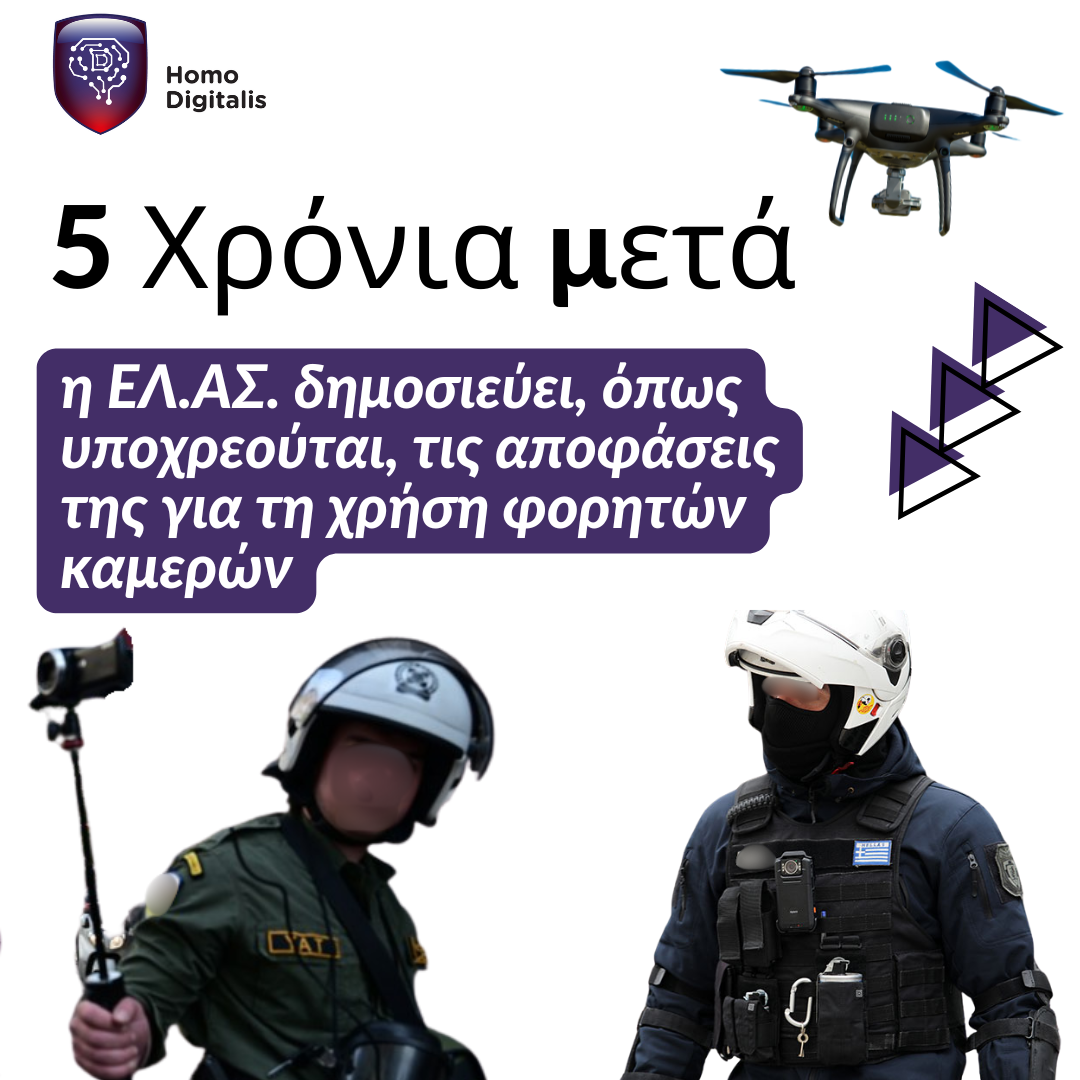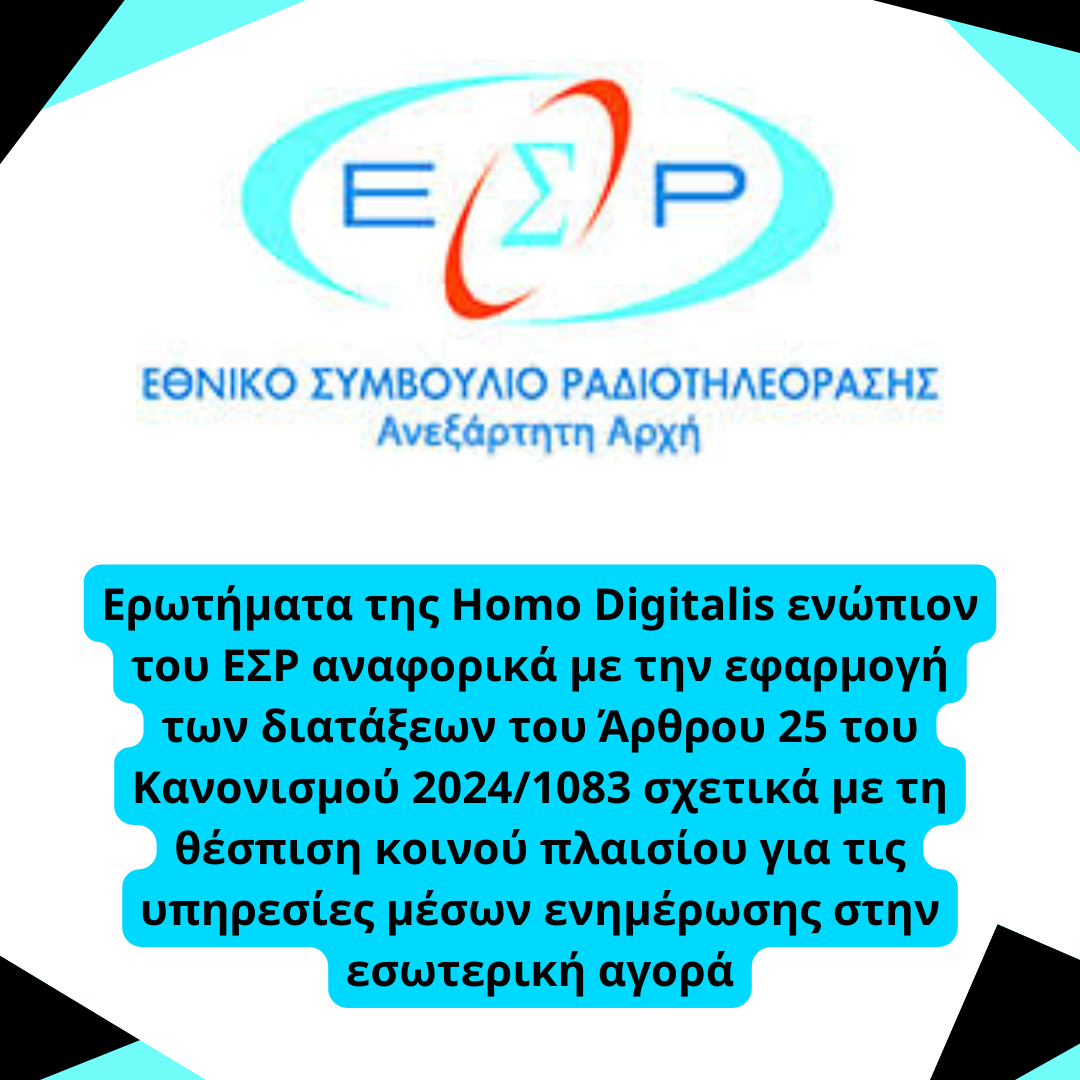Homo Digitalis participates in 2 thematic workshops of the City of Athens OGP Local
On May 18, at Serafio, Homo Digitalis had the great pleasure of taking part in two thematic workshops organized by the City of Athens OGP (Open Government Partnership) Local Working Group. The workshops focused on Universal Accessibility in Physical and Digital Spaces and Transparency, Accountability, and Participatory Budgeting.
Through a shared methodology of gathering proposals, clustering ideas, and voting, under the coordination of Alexandros Melidis, General Director of the Greek Free Open Source Software Society, we had the opportunity to discuss and jointly decide on a series of particularly interesting proposals.
Our organization was represented in the two thematic discussions by Lamprini Gyftokosta and Eleftherios Chelioudakis, respectively.
We warmly thank the members of the Working Group responsible for designing and implementing the action plan for the City of Athens’ participation in OGP Local, for their kind invitation and excellent collaboration — including Ioannis Fytros, Angelos Kaskanis, and Stefanos Loukopoulos.
From Secrecy to Transparency: The Five-Year Battle for the Publication of Police Camera Operation Decisions
Strategic legal action takes time, but its outcomes benefit society as a whole, strengthening public trust in institutions.
In December 2020, Homo Digitalis, in collaboration with Reporters United and The Press Project, formally requested access to the Hellenic Police’s decisions regarding the operation of drones and other portable cameras in public spaces, as stipulated in Article 12 of Presidential Decree 75/2020. Despite the legal obligation to publish these decisions publicly, the police refused access, disregarding the transparency required by law.
A few months later, in May 2021, we filed a joint complaint before the Hellenic Data Protection Authority (HDPA), citing repeated non-compliance by the police—at least 67 times over a short period. The HDPA launched an investigation into the legality of these practices.
In early 2024, we submitted a request for access to HDPA documents to better understand the progress of the investigation. Correspondence between the Hellenic Police and the HDPA revealed that, even as of March 2024, the police continued to argue that Presidential Decree 75/2020 did not require them to publish camera operation decisions, despite the HDPA’s opposing view.
Yesterday, through a report by journalist Giannis Bazaios in Efimerida ton Syntakton, we learned that such a decision had been published on the Hellenic Police’s website. Indeed, upon verification, we found that as of February 17, 2025, the police had changed their practice and begun publishing these decisions as required by law. The report was published today online here.
From the initial refusal in 2020, it took five years for this change to be implemented. We now eagerly await the final decision of the HDPA and the conclusion of its investigation, which will establish a definitive framework for transparency and accountability within law enforcement.
What’s Happening with the 1,000 Smart Policing Devices of the Hellenic Police, Five Years After Our Complaint to the Hellenic Data Protection Authority ?
What is the status of the 1,000 portable smart policing devices used by the Hellenic Police as part of the Smart Policing program, which incorporate artificial intelligence technologies and cost €4 million? (Spoiler alert: the news is not good!)
Journalist Eftychia Soufleri has written a detailed article for NEWS247.gr (THE MAGAZINE) shedding light on the case and highlighting the key actions taken by Homo Digitalis since 2019. Our Executive Director, Eleftherios Chelioudakis, provided statements on behalf of our organization.
Significant Revelations Emerge for the First Time!
According to the report, despite the absence of any legal framework allowing their use, the Hellenic Police:
Claims to have been using the devices operationally since 2021, even though the Hellenic Data Protection Authority (HDPA) has been investigating the matter since August 2020 and continues to do so today.
Confirms that it fully utilizes the biometric processing capabilities of these devices (facial recognition, fingerprint identification).
Validates what was outlined in the 2018 technical specifications document, namely that the devices are used for “preventive policing”, with the collected data potentially being used in the future to establish correlations, conclusions, and predictive analytics.
Awaiting the HDPA’s Decision
We are still awaiting the Hellenic Data Protection Authority’s decision, as its investigation has now lasted over 4 years and 7 months (initiated in August 2020). The situation is escalating rapidly, and the risks to democracy and human rights protection are extremely high.
A big thank you to the journalist for her interest in our work!
You can read the full article here.
Letter from Homo Digitalis before NCRTV on the obligations arising from Regulation 2024/1083
On September 3, Homo Digitalis submitted an open letter (no. 4844-3-9-24) to the The National Council for Radio and Television (NCRTV), in which it raised two (2) questions regarding the application of the provisions of Article 25 of Regulation 2024/1083 on the establishment of a common framework for media services in the internal market.
In particular, as stipulated in Article 25, par. 2-3, the competent independent authorities in the Member States shall monitor and submit an annual report on the allocation of public advertising expenditure to media service providers and online platform providers. Those annual reports shall be made publicly available in an easily accessible format and shall be based on the information made public on an annual basis by electronic and user-friendly means by public authorities or entities that have incurred public advertising expenditure.
This information shall include at least:
(a) the official names of the media service providers or online platform providers from which services have been purchased,
(b) where applicable, the official names of the business groups to which any media service providers or online platform providers belong; and
(c) the total annual amount spent and the annual amounts spent per media service provider or online platform provider.
In view of the above, Homo Digitalis submitted the following two (2) questions before the NCRTV:
1 ) Has the NCRTV proceeded with the publication of the relevant annual report for the year 2023 regarding the allocation of state advertising expenditure to media service providers and online platform providers? If the NCRTV does not have the relevant competence, before which body should we appeal?
2) Does the NCRTV know whether public authorities or entities which have incurred expenditure on state advertising have complied with their obligation to publish annually by electronic and user-friendly means the information detailed in Article 25(2) of Regulation 2024/1083? In what ways could we as civil society monitor the respective activities of public authorities/entities in order to assist you in your work and inform you of any shortcomings in their compliance?
We hope to receive an answer to our questions soon.



